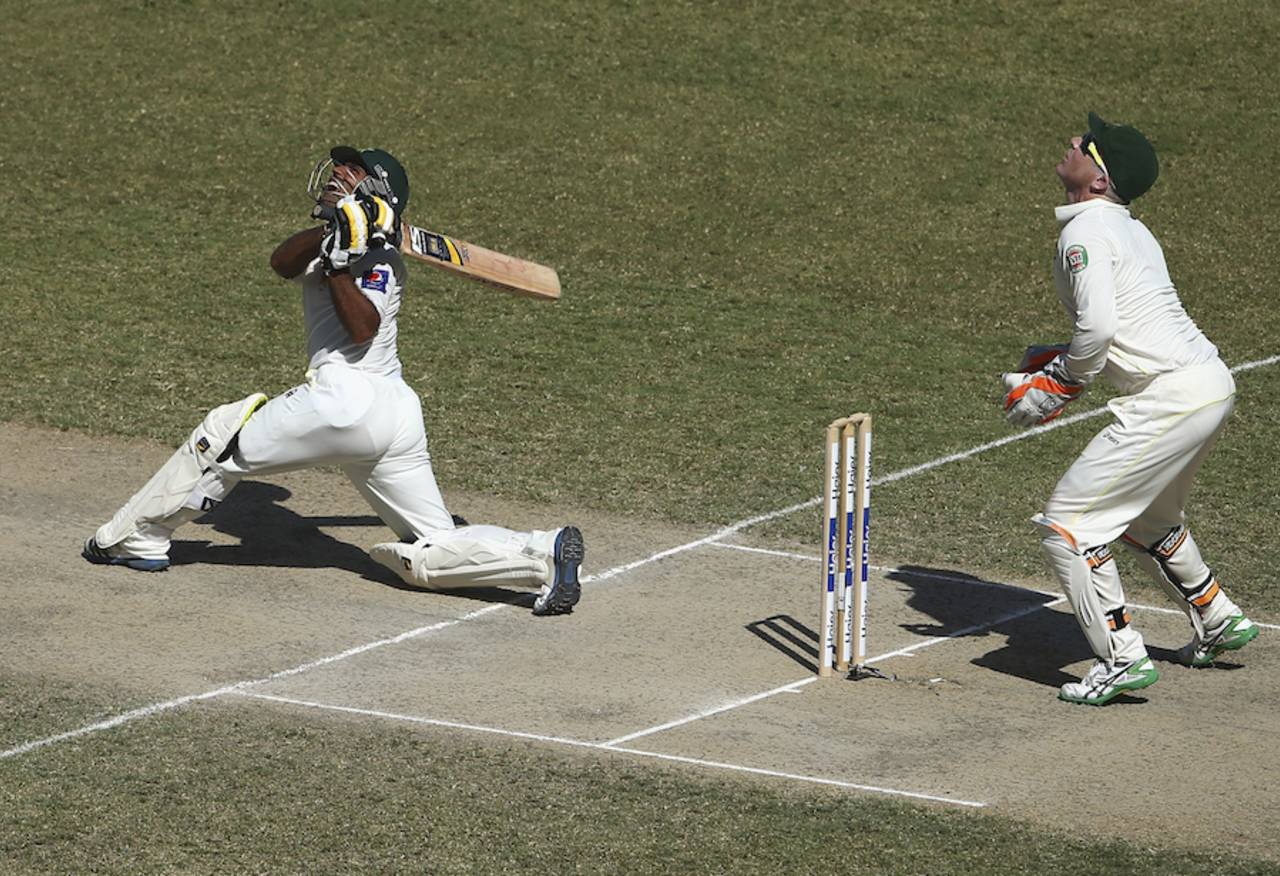For someone who believes in meditation, it's only right to question premeditation. In my humble opinion, to clear the mind is far more beneficial than filling it. When it comes to batting, also from experience, nothing is more accurate.
To clear the mind is to allow an instinctive charge to ignite. To clear the mind allows potential to rush forth. On the other hand, to fill the mind is to force the issue, to demand a specific action, resulting normally in hitting too early after moving too little. The mind has jumped the gun, resulting in an early swing of the bat with decelerated power.
Far better to see it early, allow for the information of the ball to manifest, a decision found, the movement fluent and full, the hitting late and powerful. When you take that extra split-second, you ensure all is ready and working, the late timing and gap found, confirming there is always time for anything.
Yet the line between success and failure is so fine. As the bowler runs in, there is often a brief moment of wavering between predetermined thinking and a clear, instinctive mind. The mind can switch, and it often does completely out of the blue. One of the best ways to shut out a random interrupting thought is to repeat a slow positive affirmation: "This ball, this ball, watch the ball, watch the ball."
When a random predetermined thought rushes in, there is no stopping the outcome. The message goes straight to the hands, the hitting. Yes, the ball is sighted clearly, but it's the predetermined shot that is prominent in the mind, so the swing is made urgently, prematurely, the body doing very little while the hands and bat rush in to send the ball to where it was commanded prior to being bowled.
At this point the odds are with the bowler, the batsman having given away all his power, mentally and physically.
One of the best ways to shut out a random interrupting thought is to repeat a slow positive affirmation: "This ball, this ball, watch the ball, watch the ball"
The clearing of mental stimulation prior to the ball means trusting the instinctive software waiting to send accurate information to the nervous system and body. It results in a full appreciation of the ball's behaviour through the air and off the pitch, and what the appropriate reaction should be.
This choice is the one that supreme batting champions for over hundred years have used. However, recently, with the addition of T20, the desire to decide first, before the ball is seen, has changed the nature of the batting mindset for good.
Prior to T20, the only time batsmen were lured into such prolific premeditation at the crease was in the first and last ten overs of a limited-overs match. In T20, with only 120 balls an innings to play with, suddenly the decision that a boundary is needed instantly becomes a no-brainer. The need to hit sixes becomes the focus from ball one. To prepare for this, the batsman feels a need for a headstart, literally. He thinks that to clear the fence he needs to muster his strength and methodology early. Hence the early swing of the bat.
It's a huge tease. Yet time and again we see that clear-headed batting is the ultimate way to operate in normal, more timeless cricket. It will always produce a better long-term result.
Sadly, in the frenzy that can descend quickly in T20, short-term gain is sought. When it comes off on odd occasion, it becomes a drug. It's so cool to predict a shot and then pull it off. It's like you have this special gift and you want to show it off often. Yet it all goes against the art of batting as demonstrated by Don Bradman, the greatest ever.
In the good old days, if you tried this with an old-fashioned bat you would get out. Nowadays, with the latest innovations in bat-making advancing as quickly as they are, the premeditated slog has become successful. The six is now easily achieved with a turbo weapon and a tiny ground to clear.
This six-hitting phenomenon is a massive boost to the brand value of a player. He is prime real estate in a T20 market if his slugging profile is lifted. This kind of freelance slugger has become the rage in the IPL.
And so this is the tease for generations to come: do you set the brain to "pre" or to "clear"? It depends on what uniform you are wearing, what format you are playing, even what country you are in. "Clear" for Tests, "pre" for T20, and "good luck" in one-dayers.
Martin Crowe, one of the leading batsmen of the late '80s and early '90s, played 77 Tests for New Zealand
